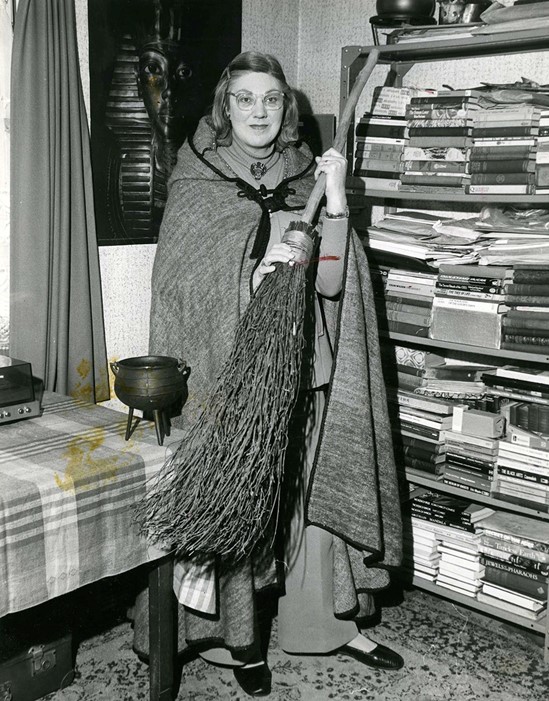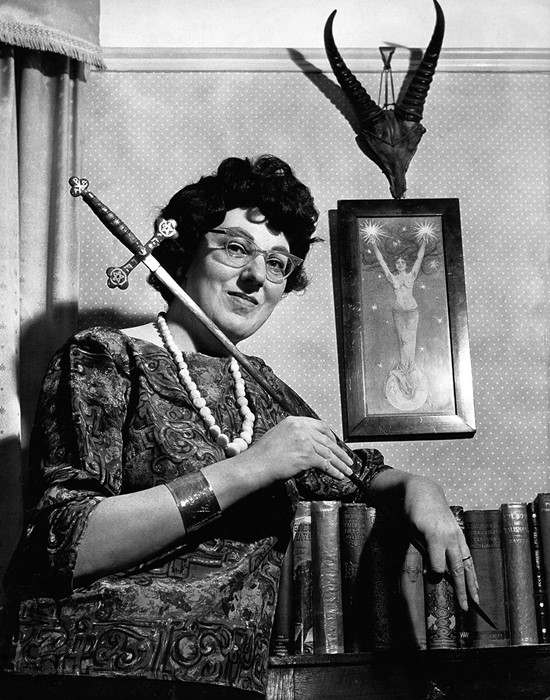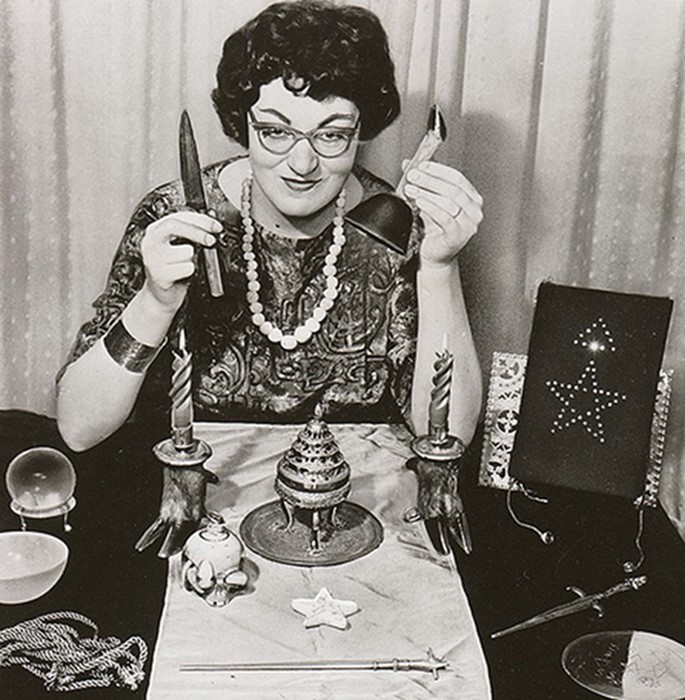High priestess of an early Wicca coven and a pioneer of the Aquarian Age, Valiente was a prolific and passionate advocate of witchcraft, and much more besides...
There aren’t many words as loaded as ‘witch’ in the English language. Centuries of mythology, persecution, and perhaps the greatest patriarchal massacre of women, elderly people, and disabled people (and generally speaking, anyone who dared question or contradict holy logic) have resulted in a cultural trope that is far too often seen in contemporary imagery. Doreen Valiente (née Edith Dominy) changed all that, sparking the conversation about the Pagan traditions of witchcraft at a time when it had only just been made legal in 1951.
After a pastoral middle-class upbringing in the home counties, Valiente began practising magic as a teenager, walking out of her local convent school at the age of 15. Her passions remained unwavering through WWII, during which she worked as a translator at Bletchley Park, up until she was initiated into a coven during the summer solstice by Gerald Gardner, the founding father of the Wicca movement. With a gift for poetry and an indomitable objectivity and research-led mind, Valiente quickly rose to become High Priestess of the coven and rewrote much of Gardner’s seminal Book of Shadows and Charge of the Goddess, two texts that continue to act as the lynchpins of Wiccan practice due to her resilience.
Although Valiente’s career may seem strange to our modern condition of cynicism and Google-powered rationality, it’s important to consider the context in which she emerged. Besides the broomsticks and cauldrons, she advocated the protection of nature and animals, as well as the advancement of women’s rights, long before such movements had truly gotten off the ground. As Ralph Harvey, a Wiccan High Priest, remarked in her eulogy, "Wiccans were the original green party."

Defining Features
Rarely seen without her hypnotic spectacles and dramatic necklaces, Valiente was not one to be missed. Her collection of folk and Wicca paraphernalia, from broomsticks to five-point stars, as well as cauldrons and capes and candles, has come to inform the imagery surrounding witchcraft across various cultural outlets. Considering that in the 1950s, Wicca was an underground cult which subsequently became the world’s fastest growing religion in a matter of decades, Valiente is one of the 20th century’s most significant figures of influence. She lent a traditionally folkloric, Pagan aesthetic to her movement and embraced it during her Wiccan festivals and rituals. In her last address to over a thousand people at the National Conference of the Pagan Federation in 1997, Valiente noted: "We have literally spread worldwide. We are a creative and fertile movement. We have inspired art, literature, television, music and historical research. We have lived down the calumny and abuse. We have survived treachery. So it seems to me that the 'Powers That Be' must have a purpose for us in the Aquarian Age that is coming into being."
Seminal Moments
Valiente was the author of five books, the subject of two biographies, and the bard behind a number of chants and ritualistic poems that have formed the framework for modern-day Wicca. Rumours circulated that she continued to work for British intelligence far beyond her days at Bletchley, although it has never been confirmed. As a self-proclaimed witch, she naturally found herself being attacked from two sides: by Christians who believed that witchcraft was Devil worship, and by rationalists who refused to acknowledge it. Her answer to them was that the theology of witchcraft was purely Pagan and therefore refused to acknowledge the Devil, a Christian invention, and that the Wiccan rituals undoubtedly released a power from within.

Her strong sense of self allowed her to follow her instincts, whether it was starting her own coven or updating the work of Gardner so that it was rooted in ancient text rather than more contemporary interpretation. "I saw what people would call the world of everyday reality as unreal, and saw behind it something that was real and very potent," she once said. "I saw the world of force behind the world of form." There were occasions, however, when her strong-willed character resulted in questionable decisions, such as the moment in the early 1970s when she became involved with the National Front and the Northern League, two far-right political groups. Valiente hoped that they would serve as a political equivalent to the Pagan Front, the group which she co-founded to campaign for the religious rights of Wiccans and other Pagans, however she later allowed her membership to the parties to lapse as she was critical of their opposition to women’s liberation, gay rights, and sex education.
She's AnOther Woman Because...
Valiente’s lifelong dedication to her beliefs was what allowed the hobby of a handful of eccentric Brits to flourish into an international religious movement and the UK’s seventh largest religious group. She was a talented poet, author, and community leader, and a staunch campaigner for the preservation of nature and the environment – long before they were concerns of the masses. Perhaps most importantly, her desire to research ancient texts for objective truth is responsible for the revival of Pagan and folkloric traditions that would otherwise have been forgotten or misinterpreted. How many women can we say kickstarted an entire religion?
Folklore, Magic and Mysteries: Modern Witchcraft and Folk Culture in Britain runs from April 2 until Autumn 2016 at Preston Manor, Brighton.
